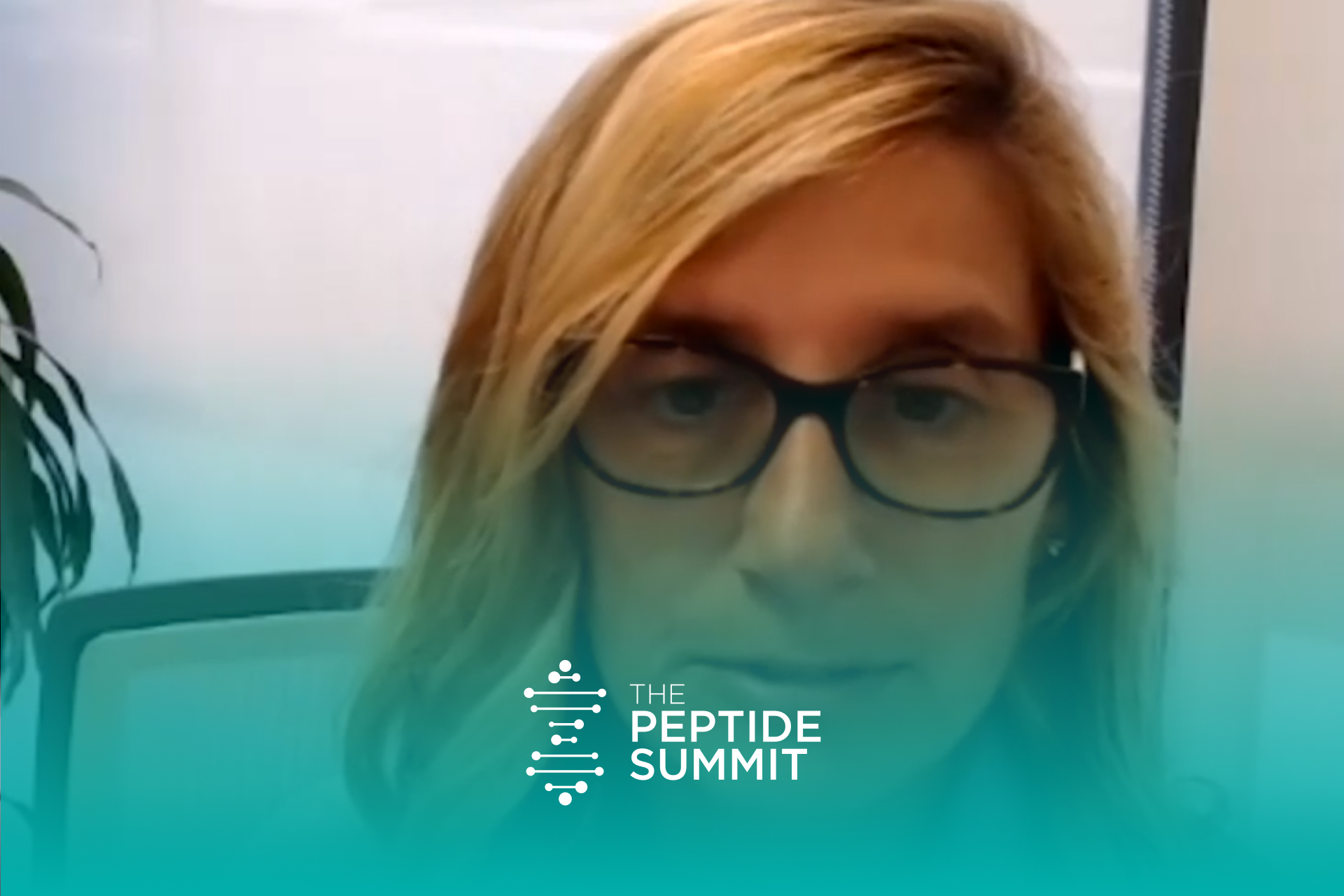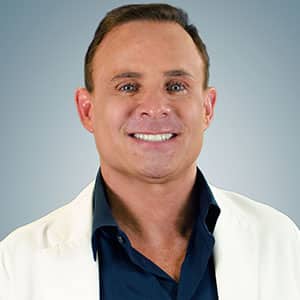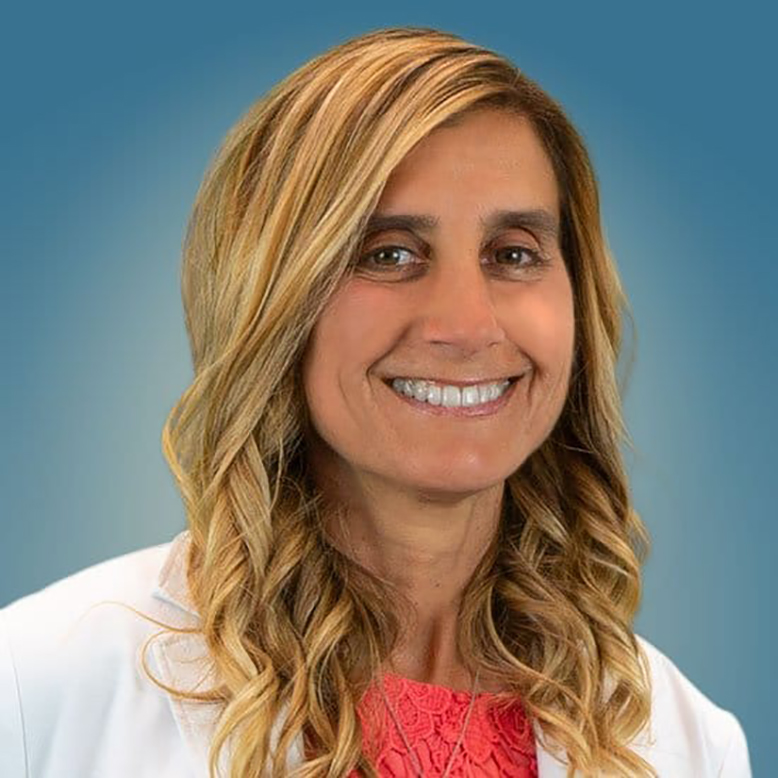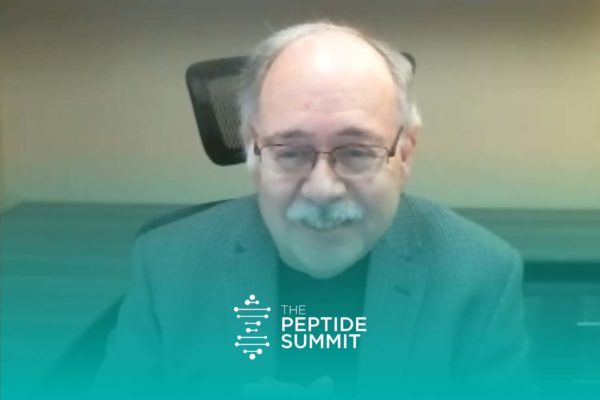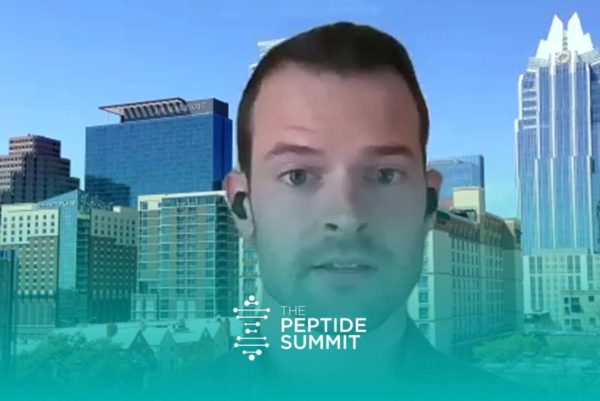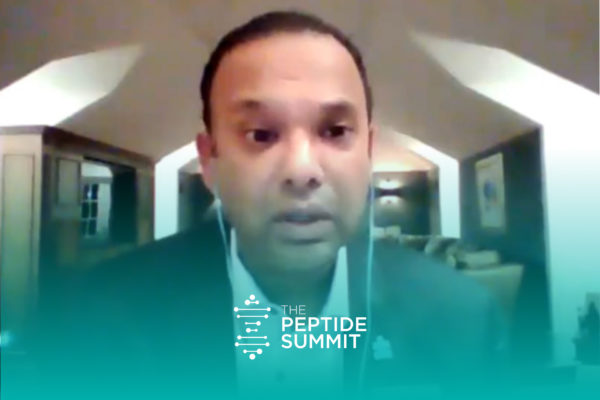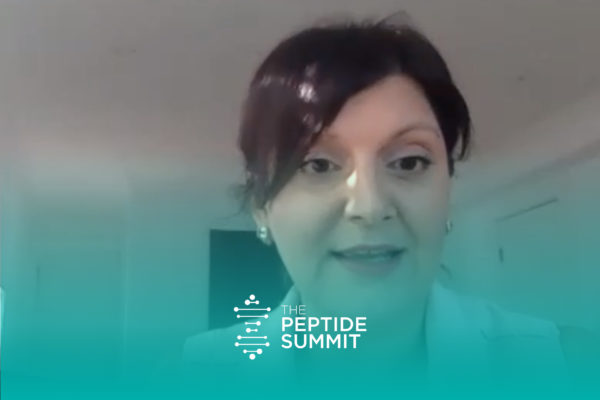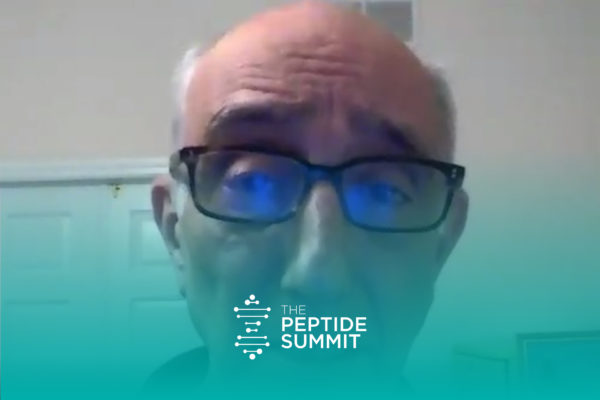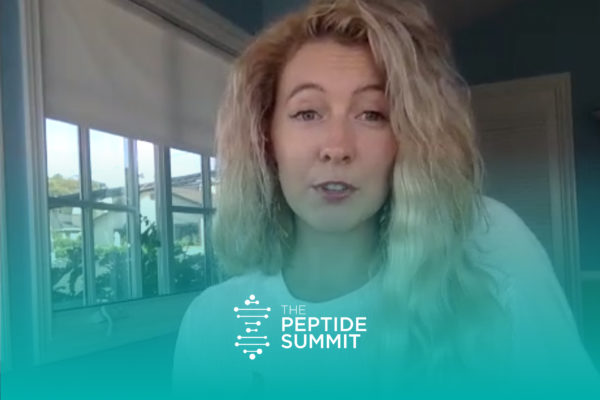Lisa Hunt, DO
It’s truly an honor just to be here, to be able to do this interview with you, and it’s an honor to work as part of your team. So I’m grateful to be here.
Kent Holtorf, M.D.
Oh, great. Okay. I’ll give you the $10 for— All right. So yeah, just a little bit about Lisa. So we pretty much pursued her and stalked her for several years to come on board. She was nationally recognized as an expert in many areas, specializes in anti-aging medicine, functional medicine, natural thyroid replacement, menopause, andropause, again bio-identical hormone replacement, chronic fatigue syndrome, some of the sick of the sick. She’s become our go-to person for those patients that have really been everywhere, and that’s what we specialize in, fibromyalgia, chronic fatigue syndrome, Sears, mold, Lyme, immune system—we’ve kind of become an immune modulatory clinic I kind of say—neuro-transmitters. She basically brought a lot of new therapies to our practice and she—I think the wonderful thing about her is her passion for learning and how much she cares about the patient.
She’s relentless and it’s kind of become a joke, if she needs something for the patient she will find the world expert and call them, and call them until she gets the answer. I mean, it’s pretty amazing. And the empathy she has and just the amount of conferences that she goes to, and she’ll develop a treatment program from all these things. It’s really helped continue with our practice. We pride ourselves in continually learning and bring those up to date. She has taken that, put that on steroids, and just bringing new therapies for the entire office. She loves teaching and sharing information. It says here, her mission is to build on every level of your health to achieve the best quality of life. She also practices what she preaches. I tend to “do as I say, not as I do”, in terms of diet and exercise.
So she’s always on me too! It’s really a pleasure to have her as part of our team and really an integral part because it’s just—she’s the quintessential doctor now. Really what a doctor should be, instead of just doctors now, the patient comes in, “Okay, here’s a prescription.” They don’t care why or what, just kind of get you out of the office. She’s going to get to the bottom of it and keep working, and working, and working until she gets it. She graduated from the Western University of Health Sciences and completed her residency in the San Joaquin General Hospital. She’s board certified in both family medicine and holistic and integrative medicine and brings over 20 years of experience—actually, it’s probably about 80 years of experience crammed into 20 years—as a family physician.
She was medical director where we begged her, we did everything we could to get her on. So we’re so happy to have her. She’s a certified health coach and she really brings that to the practice in that she works with the patients, she loves the patients, and really works with them and understands them. I don’t always say, but she gives everyone her cell phone. She’s talking to them on the weekends. She just goes over and above with everything. As you can tell, I can go on and on for hours about her. She’s awesome, and just her passion for knowledge is just great. But, with that—again, she’s gonna talk about innovative treatments for autoimmune thyroid disorders. I think she was gonna start with a PowerPoint, but what kinda got you into this to start with, instead of going the standard route?
Lisa Hunt, DO
Well, both of my parents had chronic illness and so having gone through that as a child, I was able to witness different treatment modalities for them. So that kind of planted the seed for me. And then just doing family medicine and not having the tools to actually help my patients feel better. So I wanted to look for another way because the resources that I had didn’t feel like enough. So that’s really how I started my journey.
Kent Holtorf, M.D.
Yeah. And it seems like you’ve always, from day one, just sought out more and more information. You’re never satisfied. [Laughing]
Lisa Hunt, DO
No, no.
Kent Holtorf, M.D.
I see it and it’s just amazing.
Lisa Hunt, DO
And I’m grateful for you putting up with me in asking all the questions.
Kent Holtorf, M.D.
It’s like—yeah, I see myself and I’m like, “Gosh, I’m a pain in the ass too.” But it’s really a pleasure to see you in action and hearing the feedback and the referrals that you get, because you get the sickest of the sick better. Today we’ll be focusing on thyroid, which is one of my passions, which is a subset of all the treatments that we do.
Lisa Hunt, DO
Correct.
Kent Holtorf, M.D.
And people generally don’t think of peptides when they think of thyroid, right?
Lisa Hunt, DO
Right.
Kent Holtorf, M.D.
They think of basically just your thyroid, so we’re going to talk about that. I guess we can go ahead and start your PowerPoint.
Lisa Hunt, DO
Okay.
Kent Holtorf, M.D.
And yeah, so share your screen there.
Lisa Hunt, DO
Perfect. So I want to just start by going over the potential causes of autoimmune thyroid disorders. As you can see on this slide, there’s multiple causes. As you know, Dr. Holtorf, we’ve been spending a lot of time on mitochondrial dysfunction. Recently that seems to be the buzz word that has a lot to do with what we’re doing these days. And you can also see on the slide, there’s multiple other causes that can influence the immune system. I love the way that you explain the immune system, so I would love for you to be able to explain how you do with the TH1 TH2 side of the immune system if you wouldn’t mind just for a minute and how these different causes affect the immune system, particularly in regards to the mitochondria. I love the way you do your little—
Kent Holtorf, M.D.
Yeah, people love it and after the thousandth time they kind of go, “Oh my God, here he goes.” But just through the years, we’ve kind of figured out—you know, I had chronic Lyme myself and did three and a half years of the highest dose of IV antibiotics and like something—and it didn’t work, went into heart failureand, and doing the peptides really was so huge in bringing me back to functioning. But really, looking at the immune system, we found with so many illnesses the commonality is a dysfunctional immune system, low mitochondrial dysfunction, hypothalamic-pituitary, but everything’s a vicious cycle. And what happens—normally, if you—and everything’s an over-simplification when you talk about the immune system, but it’s a good way of looking at it that fits with so many illnesses.
If you look at the one side of the immune system, it’s called TH1, and kind of Tregs, so that gets stuck inside the cell and is also the part of the immune system that kind of puts the brakes on over stimulating the immune system. And then TH2 gets stuck outside the cell, and then TH17 is basically the inflammatory cells that are very much responsible for autoimmunity. Now, if you look online and look up auto-immunity, you’ll see the breakdown. Well, these are TH1 autoimmune diseases, these are TH2… But throughout the years you’re like, “Well, that doesn’t seem to make sense because the same treatment works modulating the immune system for the so-called TH1 and the TH2 auto immune diseases.” So what they have found somewhat recently, a lot of people still don’t even know this, but that the TH1 and the TH17 cells look very similar, but they’re very different.
The TH1 will actually suppress the TH17, which is the bad ones that are causing autoimmunity. So you’ll have a lot of diseases called TH1 autoimmunity, but they’re actually TH17. I know that some doctors have protocols like raise your TH1—lower your TH1, but it’s really wrong because the problem was not too much TH1, it was not enough TH1. It was too much TH17. In terms of—and everything’s a vicious cycle. Then in terms of infections, if you look, you can really make the argument that every autoimmune condition has an underlying— something’s driving it. Oftentimes it’s an underlying chronic infection, ’cause that really pushes the body from low TH1 to that increase TH2, or stress.
We always find, like chronic fatigue syndrome, fibromyalgia, Lyme, that people go, “God, I went through this stressful event of divorce, a death in the family, trauma, domestic violence, all of a sudden it set everything off, which I think caused a problem because so many doctors—this is a very complex illness. They can discount and say, “Oh, see, it happened after he was stressed… This is a stressed out woman.” But what stress does, we think of it lowering the immune system, but it doesn’t lower it, it modulates. It lowers that TH1 and Treg, but really raises that TH2, that TH17 inflammation and really sets up the body for autoimmunity. Then you get the inflammation, which causes basically mitochondrial dysfunction, which makes now the hypothalamic-pituitary
Lisa Hunt, DO
Right. So Dr. Holtorf really, basically, already touched on most of these that are on this slide. So I’m gonna go ahead and move on to the next one. Also, keeping in mind heavy metals can be an issue as well, different medications, environmental causes as well. Just wanted to touch on the fact that mold can be an issue. VOC’s, BPA. Those are other things I just want people to keep in mind. It can be environmental as well.
Kent Holtorf, M.D.
I’ll mention, it’s usually never one thing.
Lisa Hunt, DO
Right.
Kent Holtorf, M.D.
Even with Lyme. I think many, many people have Lyme and never know it. Now you add mold, you add stress, you add heavy metals, add toxicity, and then all of a sudden it sets it off. Yeah.
Lisa Hunt, DO
Yeah. And then I just wanted to touch on that there’s two different types of autoimmune thyroid disorders. I mean, most people already know there’s two primary ones, both Graves’ and Hashimoto’s kind of being on the opposite end of the spectrum. Basically the difference lies in which region of the thyroid gland that is targeted by which of the antibodies that are produced and that those carry out opposite effects.
Kent Holtorf, M.D.
Yeah. And almost everyone with Grave’s has also Hashimoto’s. So it just depends if the antibodies tend to hit the receptor that stimulate the thyroid, you get Grave’s, if they don’t, you get Hashimoto’s. So they’re kind of the same illness and then they split off. But they’ll usually have—the Grave’s people will also have Hashimoto’s.
Lisa Hunt, DO
Yeah. So we’re looking for different lab values that might be more indicative of one than the other, particularly the thyroid stimulating immunoglobulin antibodies. Those can be present in 90% of people with Graves’ disease. Then typically with Graves’ disease—and I’m really excited to share a couple of case studies at the end of the PowerPoint that show how some of the innovative therapies we’re going to be talking about, particularly peptides, really help to demonstrate that they do work with the different lab values. But primarily with Grave’s disease, we’re going to see an increase in the thyroid hormones, particularly the free T3 and free T4. In traditional medicine, basically the treatment is to decrease your thyroid hormones. Some examples, like I noted on the slide, were things like a thyroidectomy or radioactive iodine. The patients that I’ll be presenting at the end, they really wanted to preserve their thyroid. They didn’t want to have to do these types of treatments. So we’ll go over some of the therapies that we utilized.
Kent Holtorf, M.D.
I’ll just mention, the big thing of endocrinology or Grave’s is, “Let’s take out your thyroid.” A big part of our practice is seeing people who’ve had their thyroid taken out, let’s say for cancer, they never even had high thyroid, and then what they do is they’ll give Synthroid and titrate their TSH to be normal, and they call them euthyroid. But why then is the average weight gain 14 pounds? The patients have fatigue. They—basically all the symptoms of hypothyroidism but the doctors say, “Well, it’s just in your head.” Well, wait a minute. I didn’t have that before. So what they found is that without a thyroid, you need more T3, and actually, the body—we’re trying to develop an asset in this for 15 years, we’re getting closer—but the body will secrete a TSH that is not active.
More and more the studies are showing that the TSH that everyone thinks, “Well, that’s all you need”, is very flawed. We really started out and I started out as a thyroid clinic. I tell physicians, learn thyroid. It’s one tool, but it’s a huge tool. You fix everyone’s thyroid, you’re going to get a heck of a lot of people better that have been to every doctor and oftentimes it’s a seemingly simple treatment, but it can be so powerful when you do it correctly. In general, the sicker the patient, the more they need T3. But Dr. Seemen, Endocrinologist specialist, “Oh, the patient’s sick. Don’t give them T3.” But for a lot of reasons, which—it’s a four hour talk to explain why this is, but when you’re sick, the T3, there’s poor conversion of T4 to T3, but that’s not even the biggest problem.
You hear doctors talk about that. It’s that T3, there’s not enough energy due to the mitochondrial dysfunction to get into the cell, except in the pituitary. So the TSH, that’s fine, but the body’s starving for thyroid. So we have other tests that we have that we can do to show the patient in black and white. They’re low thyroid, but their TSH is normal, and their doctor says, “No, it’s not your thyroid.” But you’re depressed or can’t get out of bed, but we can show you have low metabolism, which is the gold standard, and also the speed of relaxation phase, which we do via computer, which shows your low thyroid and everyone telling you you’re just lazy and all this stuff. You have chronic fatigue syndrome and they put all their money in one test that is shown to be inaccurate. Okay.
Lisa Hunt, DO
And then just going over the definition, which you’ve already kind of touched on. In terms of Hashimoto’s, there’s other antibodies, which as you already said, can be present in Grave’s as well. But looking for the thyroglobulin antibodies and the TPO antibodies, and there’s a pretty high percentage of people with this autoimmune issue that show positives with those. The traditional treatment for Hashimoto’s is just replacing with, like dr. Holtorf was just speaking about, just Synthroid or the typical T4 replacement therapy.
Kent Holtorf, M.D.
I want to mention one other study. It’s, I don’t know, The Lancet. So basically number—top 5 international journal, they did thyroid biopsies on people who are just fatigued. They found the majority had thyroid inflammation. So they had Hashimoto’s, but they didn’t have the antibodies that came up on the blood test. They were thyroid deficient. When you look at a test such as a TRH stimulation test, which is more sensitive, but in all its wisdom the endocrinologists say, “We don’t need that anymore because we have the highly sensitive TSH.” But they’re low thyroid! And these are just fatigued, they weren’t even chronic fatigue syndrome. They found that the patients responded to thyroid replacement regardless of their thyroid serum levels. So serum levels of thyroid hormone in the blood doesn’t—and TSH—doesn’t tell you what’s going on inside the cells.
Lisa Hunt, DO
Then I just wanted to put a slide in that just went over the different symptoms for hypothyroid and hyperthyroid. Again, the tendency for hypothyroidism is more on the Hashimoto’s side, versus the Grave’s is more the high thyroid side. I’m sure most of you are familiar with these symptoms, but they’re all laid out on this slide. Alrighty.
Kent Holtorf, M.D.
And can you mention a little bit about either children or women and fertility and how thyroid is so important for pregnancy?
Lisa Hunt, DO
Right. So you won’t be able to ovulate appropriately without having optimal thyroid levels. So that’s one thing when people come into our office and they’re preparing for pregnancy that we really want to optimize the thyroid. If there’s an autoimmune component, we definitely want to treat that as well to improve infertility, or the possibility of infertility. So, that’s definitely something that we focus on.
Kent Holtorf, M.D.
Yeah, and through the years we’ve just learned that so many people, they go to all these fertility doctors, they can’t get pregnant, and they come in and we find they’re very low thyroid and so just giving thyroid T3 and oftentimes heparin—which is a whole other talk—all of a sudden they get pregnant. We will be starting our module of—basically for fertility, prepregnancy optimization. They also found that so many things in utero, like the intelligence of the baby, correlates with the level of thyroid in a mother in utero. Well, why wouldn’t you want to have in the top 25% or the top 10%? But all these doctors, OBs, fertility doctors, they let them—they go, “Oh, you’re at the lowest 10%, lowest 20%.” Why would you want to be there? It’s going to affect your child for maybe forever or certainly for a very long time, they have developmental delay, or you might not get pregnant. Just doing that one simple, safe thing can make such a profound effect in people’s lives.
Lisa Hunt, DO
Oops, sorry. And then I just wanted to include a slide demonstrating that at Holtorf Medical Group we really do strive to get to the root cause. We’re not—there’s not a one size fits all. People are always asking just as a general concept, “What can I do?” And it’s always like—I’m always telling them that, “You’re an individual and your treatment’s going to be different than the next person.” So I really like this slide because it kind of summarizes the differences between conventional medicine, one size fits all, and what our goal is here to individualize the treatment for each individual. And particularly in regards to autoimmune illness, because there’s so many different causes so we really do have to get to the root cause to be able to determine how to best treat the patient. So now, I’m really excited to present these two cases that we had. I wanted to embark on talking about the innovative treatments that we utilize here at Holtorf Medical Group, particularly peptide therapy. Do you want me to go ahead and just go through the definitions?
Kent Holtorf, M.D.
I think it’s great because a lot of the talks, we kind of glance over some of the basics. So I think it’s great for people to hear. Yeah. Just go like, ‘What the heck is a peptide? What was that?” I mean, they’re just getting inundated with so much info. I think it’s great.
Lisa Hunt, DO
Yeah. So peptides are basically sequences of amino acids and the elegance of them is that the sequence that they’re in gives a different signal to the cell, so they’re amazing. I feel so honored to be able to work with them because they have minimal side effects, if any, and they have multiple properties. So we primarily use them here for immune modulation. So they’ve worked amazingly for my patients with autoimmune issues and they are very cutting edge. They are a newer therapy that I feel really blessed to be able to use. They can be utilized orally. They can also be used nasally. They can also be used subcutaneously as well, so there’s several different ways that you can utilize them. The beauty of them is they’re not hormones, so they don’t have to bind to a particular receptor, which makes them unique. I didn’t know if you wanted to add anything to that, but I just find them fascinating.
Kent Holtorf, M.D.
Yeah. I think when you compare, for instance, [inaudible] “Move over hormones, peptides are here.” But it’s really another layer of control of the body thatwe didn’t know about. When I say that, I say the US, like you look at some of these Eastern—Bach, and the research is there. But a lot of the research we also go to is old, very well done studies, but the problem is there’s not a lot of new research being done unless it’s a new drug because these are off patent. So who’s gonna spend millions of dollars to do a study when they don’t have a patent? It’s just—”Here you go. I did a study for everyone else.” You know? But the safety—when you look at a lot of these in their pleiotropic
Lisa Hunt, DO
Right, right. So I’m really excited to present these case studies so people can actually see concrete evidence that they do work. So, with your permission, I’m just going to go ahead and read through the case study and share what we did. Then the graph is there that shows the evidence that the peptides do indeed work. The first case was a 39 year old Caucasian female, and she presented with a chief complaint of an 11 year history of fatigue, low energy, exhaustion, 10/10, migraines, generalized muscle and joint pain, stiffness, brain fog, poor focus, unrefreshing sleep, she had an elevated heart rate, like in the 120s at rest, and flu like symptoms. She noted that her symptoms started after she was training for a marathon and after her child was one year of age. She had seen, I can’t even tell you how many doctors before she came in here.
She walked in here with a pulse of 120, and nobody had even told her that she was tachycardic. She had been diagnosed with fibromyalgia, depression, anxiety. She was on antidepressants. She had noted that the medications that she was given had caused a 20 pound weight gain. So then after the first visit, we ran labs on her. As you can see, her natural killer cell function was 2 and we commonly see that with patients that end up—she didn’t know that she had any Lyme bands, but we did test her for Lyme. As you can see her TH1 cell or natural killer cell function was quite low. Her Western Blot did demonstrate the two bands. So I’m just going to go to the next slide. So these are the therapies—
Kent Holtorf, M.D.
Can I just say a little something?
Lisa Hunt, DO
Yeah, yeah, please.
Kent Holtorf, M.D.
So when you see someone like this, one, such a high resting pulse, that shows that the immune system, the sympathetic, parasympathetic system, she’s in fight or flight. It’s dysfunctional, which goes along with the— basically, the neurological immune system is out of balance. We use the natural killer cell function as a marker for that TH1. So it really should be above 30. The lab says basically 7, but I’ve talked to the medical director, it needs to be a send out through Quest, National Jewish, he said, “This is ridiculous. It’s so low.” And you look at the literature, it should be 30. He says, “Well, they have to do their own reference ranges and they take, whatever, 25 people who probably half of them are really sick and it widens that reference range.” So really 2, she has the TH1 is so low.
I think fibromyalgia is the most ridiculous diagnosed, 11 out of 18 tender points. Those tender points are nothing special. There’s nothing that those are like, “Press there, oh that’s—” Basically you look at like rheumatology videos, how to do that exam, they take like 20 minutes! You want the fibromyalgia it’s, “Hey, do you have pain all over? Are you tired? You can’t sleep? And do you have post exertional fatigue? There you go.” You know? And we use a lot of times to test low natural killer cell function, if look at studies on chronic fatigue syndrome, 75%, 70-75% will have low natural killer cell function. So these natural killer cells, which monitor the body for intracellular infections and cancer don’t function.
So about 70 to 75% will be low. If you do like a LabCorp, what is [inaudible] natural killer cell number, about 25% are low. So this is more sensitive. When we see that low, we really think of a chronic infection in this patient. I think fibromyalgia did such a disservice, also chronic fatigue syndrome. So chronic fatigue syndrome goes by symptoms. Fibromyalgia goes by exam. And really just, they’re syndromes. It’s unfortunately allowed the doctors to do nothing and say, “Well, you’ve got fibromyalgia. Nothing we can do. Here’s an antidepressant.” Well, what caused it? You gotta find the cause.
Lisa Hunt, DO
Right.
Kent Holtorf, M.D.
But it’s given them the license to do nothing. So I think, again, it’s an antidepressant and that’s not the problem. They’ll be depressed, they don’t make serotonin, they have all these issues, but they don’t have a Prozac deficiency.
Lisa Hunt, DO
So, we started her on several of the peptides staggered, mostly for immune modulation. So we utilize BPC-157, Thymosin-alpha, and I really loved using the Epitalon with her as well. I really think that helped to calm down her immune system. Then we also use low dose naltrexone, which is a great immune modulator as well.
Kent Holtorf, M.D.
Can you talk about each of those? The peptides, even LDN, [inaudible] combined and what you found?
Lisa Hunt, DO
Yeah.
Kent Holtorf, M.D.
Like why you chose these.
Lisa Hunt, DO
Yeah, so we started with BPC-157, which is an amazing immune modulator. It’s a great antimicrobial as well. So we used it for those properties, the Thymosin-alpha really increases the natural killer cell function. I mean it’s a great antiviral as well. Epitalon is probably one of the best anti-aging peptides out there. We didn’t use it for that in this particular case, but it’s a great immune modulator as well. And as well low dose naltrexone. At this point she has no longer—we used the SubQ injection peptides for several months, but it’s almost two years out now and she no longer needs the SubQ injections. We’ve maintained her on the low dose naltrexone as an immune modulator. I also wanted to touch on the LL-37. LL-37 is an amazing antimicrobial peptide that’s innate to the human body. It’s our own natural antimicrobial and in her situation with the potential for Lyme, with the two bands, I think this was very valuable as an antimicrobial to help treat this particular patient.
Kent Holtorf, M.D.
Yeah. And with LL-37, it’s shown to kill Lyme cysts better than Tinidazole. It has very broad range, which is nice. I was at a conference this last weekend and one of the doctors was raving—he was a urologist talking about it for prostatitis. These people have chronic prostatitis and they’re put on the antibiotics for months and months, it comes back and they have to use Levaquin and these fluoroquinolones, which are having very bad side effects and he’s going—he can’t believe it! The nice thing with the peptides is they’re very synergistic to each other. You look at BPC and TB4—I’m almost a little embarrassed, at talks, like how many things that they do. You almost sound like a snake oil salesman because they heal so many things and they both tend to have the same effect, but very different mechanism, which makes them very synergistic.
Lisa Hunt, DO
Yeah. So I just wanted to show the handout that we give to patients with all the references behind BPC-157 and half the page is references of all the clinical studies that you were able to pull on.
Kent Holtorf, M.D.
Yeah, and you look and people say, “Oh, that’s not evidence-based!” Well, here’s 400 studies, okay? Most drugs that are approved, they have like 3 studies.
Lisa Hunt, DO
And on this handout, just in case anybody wanted it, it goes over all the clinical effects of BPC-157. I know I just barely touched on things. Then there’s also one here for Thymosin-alpha. I wanted to really emphasize that it increases the natural killer cell function. It’s one of my favorite reasons to use it, and it also is effective, as noted here, for issues in regards to Lyme. The Thymosin beta-4, again, here are a lot of the references that Dr. Holdorf pulled and really discusses all of its effects. Not all, but, the main ones so that you have that handout as well. Then here’s the handout on LL-37 and Dr. Holdorf has 36 references. I love to give these out to patients just so they know how science-based and Dr. Holdorf’s office is so that they can go and look at all the references. I think that’s really important.
Kent Holtorf, M.D.
Yeah. You look at things—like Thymosin alpha-1 is approved in 30 countries and in the US it’s a orphan drug that’s approved for melanoma. Also it’s approved in other countries for everything from HIV, hepatitis, cancer. Then like Thymosin beta-4 is going through a number of trials, including things like corneal ulcers. Like for instance, we use it in just so many things. We use BPC and TB4 drops for dry eye. It’s just incredible the amount of things that it does. In the studies, for instance, like with TB4 and BPC, they can’t find a toxic level. On the one study where they had adults just given higher and higher doses of intravenous TB4, they can’t find a toxic dose. Even a thousand times a dose! What medication, or anything, can you give of that dose? Try that with water, you’re gonna die. So they’re very safe, which is obviously amazing for the effects that they have. They have effects at very, very low levels, like 1 microgram, or sometimes nanograms, which is 1 with 12 zeros. They can have effects where basically medications need milligrams much, much higher. But their range is very wide. So you have a huge safety window there.
Lisa Hunt, DO
Then if we have time, I’d love to go over this other case study as well.
Kent Holtorf, M.D.
Yes, yes.
Lisa Hunt, DO
So she was a 33 year old white—
Kent Holtorf, M.D.
Oh, what about that last one? So what kind of finally happened with her?
Lisa Hunt, DO
So all of her markers, everything normalized. Again, she’s off of all the peptides, she’s basically maintained with the low dose naltrexone at this point. Did not have to have her thyroid taken out. Didn’t have to have any kind of radiation therapy.
Kent Holtorf, M.D.
How is she feeling?
Lisa Hunt, DO
She’s feeling great and she’s so grateful that she didn’t have to destroy her thyroid gland!
Kent Holtorf, M.D.
Wow, and it’s interesting that she really had a lot of things going on. You look at her immune system, she had mitochondrial dysfunction, and where all of a sudden you fix a particular thing with peptides—because they do fix a lot of things—that you can get these complex patients better without doing 10,000 things, you know? Wow, that’s great. I know you have so many—I’ve heard so many patients you’ve gotten so much better in terms of… Everyone’s so grateful. But this is a very interesting case where you didn’t have to really do many treatments.
Lisa Hunt, DO
That’s how powerful the peptides are. But it’s also emphasizing in both of these cases that we cannot forget the potential for a chronic underlying infection to be the etiology of what’s going on with these patients. Because a lot of physicians don’t necessarily look for that or believe that a chronic underlying infection could be causing that. Once we treat that and strengthen the immune system so that the infections become essentially background noise, the patient gets better.
Kent Holtorf, M.D.
And just on that—and that’s what I found out the hard way. That’s usually where you learn a lot and your lessons are expensive, but when someone has such a low natural killer cell function, you can give them antibiotics until the cows come home, but antibiotics won’t kill anything enough. They won’t get it down to zero. Your body has to take over. So yeah, you can use them selectively to knock down the infections, because they also suppress the natural killer cell function, but you need that natural killer cell function high to take over.
Lisa Hunt, DO
Right.
Kent Holtorf, M.D.
So you look at—we have so many infections that if you drop your immune system, they all come out. People say, “I don’t know if you can ever get rid of Lyme.” I think of it kind of like chicken pox, you think, “Well, I don’t have the chicken pox anymore.” Well, you do. If your immune system drops, it comes back out as shingles. So the key is to keep your immune system high and then it suppresses everything, and that’s what the body does, but if you drop that down, so many things come out that you have hundreds of infections.
Lisa Hunt, DO
Yeah, so I just really wanted to emphasize that point. But this last case was a 33 year old Caucasian female. She presented with a recent diagnosis of Grave’s, so she did come in knowing that she had Grave’s and hyperthyroidism. The only option being given to her was radiation ablation of her thyroid gland and she really wanted to save her thyroid gland. She had already tried the Tapazole, and she developed a rash so she had to stop it. She came to our office on all these medications to offset the reaction she had to Tapazole, the Benadryl, the Prednisone, the Zyrtec
Kent Holtorf, M.D.
Yup. That’s what they want to do. [Inaudible] endocrinologist, especially with Hashimoto’s, they don’t think there’s anything you can do about the autoimmunity. So their answer, like with Grave’s, we’ll take it out or nuke it. But there certainly is because there’s an underlying cause of that autoimmunity.
Lisa Hunt, DO
Yeah. So, it was really exciting to be able to have these alternative therapies. When, if I were in traditional medicine, I wouldn’t have had anything else to offer her. I mean, she was reacting to the medications.
Kent Holtorf, M.D.
And these are interesting that they responded and they didn’t need a lot of other—I mean, there’s so many— peptides are one tool. A very good tool. There are many things going on with these patients, but it shows that, okay, a lot of very good innovative doctors would have picked up on the Lyme and then treated her with months and months, or years of antibiotics, right? That would have its own problems and in the end, it may have worked or helped, but damn you cut through that and basically got it from point A to point B much quicker. Whereas you couldn’t fault the doctor for saying, “Hey, let’s work at the underlying problem”, which is the infection and going after that, but probably taking forever in whether it’s successful or not. And whether—her immune system is obviously dysfunctional if she has autoimmune disease, but you went right to the—more of an underlying result of the infection. But it’s the chicken or the egg. You get the infection because you have low immunity, but you have low immunity because of the infections.
Lisa Hunt, DO
Yeah. So that was all the slides I had to share.
Kent Holtorf, M.D.
That is just great. It gives, I think, so many people hope. As you know, so many people are low thyroid that are just told they’re lazy and, “Suck it up, eat better, exercise.” So many people cry on the first visit when we show them all the abnormalities and we like to do a lot of tests upfront so we can paint a picture. Really, I think one of our jobs is to prove to the patient what’s going on so they can see because then we tell them too, “Your doctor is gonna say this is—No, we did a CBC [inaudible] cholesterol and you’re fine!” You know? But it’s really, information is key because once you have that information and experience, you can get patients better. Is there any guarantees? No.
Lisa Hunt, DO
No.
Kent Holtorf, M.D.
And there are so many treatments and that’s one thing I love about Lisa, always new treatments coming out with and does one thing work? We try to use the thing that’s gonna most likely work and peptides are a good choice because the downside is very little. You’re not gonna cause a huge problem where you commit someone to IV antibiotics, put a PICC line in, that’s where some articles that have come out and really criticized Lyme doctors and that’s where some major problems can happen. So, the nice thing is the safety and that the benefit risk ratio is so good.
Lisa Hunt, DO
No, I am so grateful that you’ve given us this resource to be able to use for the patients.
Kent Holtorf, M.D.
Yeah. I know you get—we tend to send you some of the sick of the sick. Everything from that to just what we think of, “Oh, easy patient.” You know, she’s just been fatigued or has menstrual problems. But to them, it’s serious and it’s affecting their lives. I really love the way that you take all those patients seriously and kind of put yourself in their position. Where I think, I noticed with doctors, they just see certain things so much they’ve lost empathy. If a doctor can’t treat it, it doesn’t exist. Especially if they don’t know how to treat it, it can’t be that they’re a bad doctor, it’s that they’re a crazy patient, you know? I think it starts with believing the patient, one, and be willing to do the work to find out what’s wrong. Again, what I love about you—I sound like a broken record—is you don’t stop until you find it.
Lisa Hunt, DO
I try.
Kent Holtorf, M.D.
She’s so humble! It’s crazy. Thank you.
Lisa Hunt, DO
Thank you!
Kent Holtorf, M.D.
I think this is great and will give a lot of people hope. I mean, I see you do it day after day. You’ve just—I know you’ve changed so many lives and you know that, but I think it’s become such commonplace you forget. [Laughing] Because I hear it, people call me and sing your praises. I’m like, “Yeah, yeah, yeah, she does it all the time.” [Laughing]
Lisa Hunt, DO
Thank you. Thank you for the honour of working with you.
Kent Holtorf, M.D.
It is such a pleasure to work with you and it brings back—I get pessimistic about the whole medical system and how it kind of breeds lack of empathy and caring. And doctors I get down on, but they’re kind of put in a no win situation and where—”I can’t treat these patients in eight minutes!” You know? But they’re required to, so what else are they going to do? But, again, you take it to another level. So, I’m proud to say you’re a friend and colleague and I love learning from you and bouncing things off each other. I guess just a big thank you and appreciation.
Lisa Hunt, DO
Thank you. No, thank you!
Kent Holtorf, M.D.
I usually don’t give a lot of compliments, so—[Laughing] Just kidding! But, yeah. So this is great. Again, thanks for all that you do.
Lisa Hunt, DO
No, thank you. Thank you for the opportunity.
Kent Holtorf, M.D.
Okay, great. Have a great rest of the day.
Lisa Hunt, DO
You too.
Kent Holtorf, M.D.
All right. Bye bye.
Lisa Hunt, DO
Bye.

